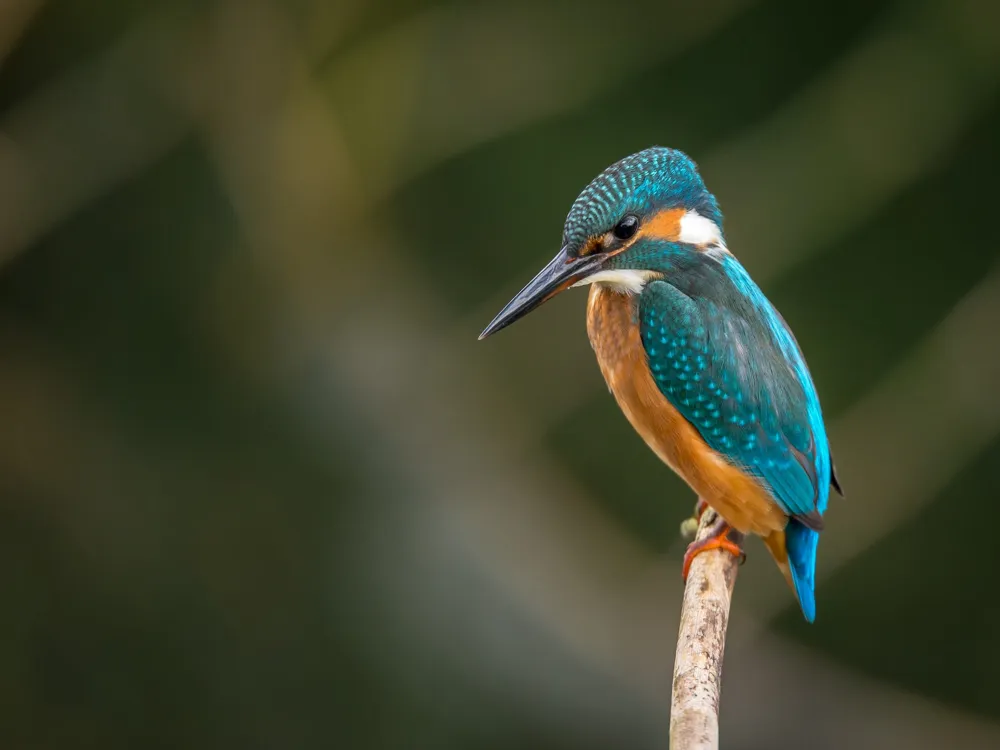The Salim Ali Bird Sanctuary, located in the heart of Munnar, Kerala, is an ornithologist's paradise and a nature lover's retreat. Named after the famous ornithologist Dr. Salim Ali, this sanctuary is a vibrant ecosystem, housing an impressive variety of avian species. Munnar, known for its picturesque landscapes and sprawling tea gardens, adds to the sanctuary's charm, making it a must-visit destination for bird watchers and environmentalists. Spanning across a significant area, the sanctuary is home to over 300 species of birds, both migratory and resident. The region's rich biodiversity is not just limited to avian fauna but extends to a wide range of flora, including rare herbs and medicinal plants. The sanctuary's unique geographical location at the foothills of the Western Ghats contributes to its diverse ecosystem. The confluence of various climatic conditions creates an ideal habitat for different bird species. Visitors to the Salim Ali Bird Sanctuary can expect to see a plethora of bird species, such as the Malabar Grey Hornbill, Nilgiri Wood Pigeon, Kerala Laughingthrush, and many others. The sanctuary is not just a haven for birds but also supports various species of butterflies, insects, and small mammals. The presence of several streams and water bodies within the sanctuary adds to the richness of the habitat, providing a vital source of water for the fauna. Apart from its ecological significance, the sanctuary also plays a crucial role in conservation efforts. It serves as a research center for ornithologists and ecologists, offering valuable insights into avian behavior and habitat conservation. Educational programs and guided tours are regularly conducted, emphasizing the importance of preserving such unique ecosystems for future generations. The architecture of the Salim Ali Bird Sanctuary in Munnar is a blend of natural and man-made structures, designed to harmonize with the surrounding environment. The sanctuary's layout is strategically planned to provide optimal conditions for bird watching while minimizing human impact on the natural habitat. At the entrance, visitors are greeted by a nature-themed gateway that sets the tone for the experience ahead. The walkways and paths inside the sanctuary are carefully laid out to allow visitors to explore without disturbing the wildlife. These trails are often flanked by native trees and shrubs, providing a natural canopy and a habitat for smaller birds and insects. Observation towers and hides are strategically placed throughout the sanctuary, providing enthusiasts with vantage points to observe birds in their natural setting. These structures are constructed with eco-friendly materials and are designed to blend in with the environment. They offer minimal obstruction to the birds while providing an immersive experience for the visitors. The sanctuary also houses an interpretive center, which is an architectural marvel in itself. This center is designed to educate visitors about the sanctuary's avian life, its ecosystem, and the importance of conservation. The building is equipped with state-of-the-art facilities, including audio-visual rooms, exhibition spaces, and a library, all constructed with sustainable practices in mind. In addition to the main structures, the sanctuary incorporates several small ponds and water bodies, designed to attract birds and provide natural watering holes. The integration of these water bodies into the landscape is a critical aspect of the sanctuary's architecture, enhancing the overall biodiversity of the region. The ideal time to visit the Salim Ali Bird Sanctuary is between October and March. During this period, the weather is pleasant, and the sanctuary is abuzz with migratory birds, making it the perfect time for bird watching. Visitors are advised to carry binoculars, cameras, water bottles, and wear comfortable walking shoes. It's also recommended to wear muted colors that blend with the natural surroundings to avoid startling the birds. Opting for a guided tour can enhance the bird-watching experience. Knowledgeable guides can provide valuable insights into the behavior of different bird species and lead you to the best spots for observation. It's crucial to respect the natural habitat of the sanctuary. Visitors should avoid littering, making loud noises, or disturbing the wildlife in any way. While photography is encouraged, it should be done without flash and with minimal disturbance to the birds. Maintaining a safe distance and not interfering with their natural behavior is important. Reaching the Salim Ali Bird Sanctuary in Munnar is convenient, as it is well-connected by road. The nearest airport is Cochin International Airport, approximately 140 kilometers away. From the airport, visitors can hire taxis or use public transportation to reach the sanctuary. For those traveling by train, the nearest railway station is Aluva, about 120 kilometers from the sanctuary. Regular bus services are also available from major cities in Kerala to Munnar, from where the sanctuary is easily accessible. For visitors driving to the sanctuary, the roads are scenic and well-maintained, offering an enjoyable journey through the beautiful landscapes of Kerala. There are ample parking facilities available near the sanctuary entrance. For those preferring a more eco-friendly approach, bicycles can be rented in Munnar, providing a unique way to explore the surrounding areas and the sanctuary itself. Read More:Overview of Salim Ali Bird Sanctuary, Munnar, Kerala
Architecture of Salim Ali Bird Sanctuary
Tips When Visiting Salim Ali Bird Sanctuary
Best Time to Visit
What to Bring
Guided Tours
Respect the Habitat
Photography Etiquette
How To Reach Salim Ali Bird Sanctuary
Salim Ali Bird Sanctuary
Munnar
Kerala
₹ 10,000 onwards
View munnar Packages
Weather :
Tags : Bird Sanctuary
Timings : 7:00 AM - 5:00 PM
Time Required : 1-2 hours
Entry Fee : Indian Nationals- INR 10
Foreigners- INR 100
Ordinary Camera- INR 25
Video Camera- INR 150
Planning a Trip? Ask Your Question
Also Refered As:
Thattekkad Sanctuary
Munnar Travel Packages
View All Packages For Munnar
Top Hotel Collections for Munnar

Private Pool

Luxury Hotels

5-Star Hotels

Pet Friendly
Top Hotels Near Munnar
Other Top Ranking Places In Munnar
View All Places To Visit In munnar
View munnar Packages
Weather :
Tags : Bird Sanctuary
Timings : 7:00 AM - 5:00 PM
Time Required : 1-2 hours
Entry Fee : Indian Nationals- INR 10
Foreigners- INR 100
Ordinary Camera- INR 25
Video Camera- INR 150
Planning a Trip? Ask Your Question
Also Refered As:
Thattekkad Sanctuary
Munnar Travel Packages
View All Packages For Munnar
Top Hotel Collections for Munnar

Private Pool

Luxury Hotels

5-Star Hotels

Pet Friendly






















